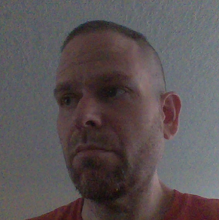Whether from the nature of birth, or the result of conditioning, there seems to be the tendency of some members of society to objectify the rest of the members of society, and perhaps even to objectify themselves by the same standards. This tendency to view humanity as a mere commodity, that may be assigned a value based upon productive value or aesthetic appeal seems indeed a rebellion against that very essence of what separates humans from the brute creatures and against that refinement which the progress of time and effort has helped to nurture in our beings.
It might be wondered what incidents have led to this movement toward seeming devolution. Or has this throwback toward primitive concepts been ever present in our genetic code, ripe for exploitation by those in whom the tendency predominates their very nature. Regardless, it need only require patient observation of the other creatures that inhabit the earth to come to the conclusion that it is indeed a movement toward devolution, and one which ought to meet with our deliberate defiance.
When we examine the behavior or other highly evolved animals, they tend to display altruism or empathy more frequently than simpler creatures. Examples of the human species tend to display such behavior more frequently. Mankind has even attempted to design elaborate systems to the nurturing of altruism, empathy, sympathy and related virtues, though all too often objectification rears its ugly head in such institutions such that the virtuous are subjugated or alienated from such systems entirely.
Other institutions which seek profit not in stealth of virtue, but as the substitution of it, tend also to nurture the objectification of the species, and again in such institutions those who cling to virtue over the instinct for survival become subjugated or alienated as well.
Though the species as a whole tends toward what is rightly called humanity, it is inhumanity that prevail in those principalities that we call "human institutions." What can be done to combat the evil? To limit the power of humanity before it's institutions? Or isn't it the way of progress and virtue to limit the power of institutions by humanity? I should think the latter...
Saturday, March 26, 2011
Subscribe to:
Post Comments (Atom)
BlogCatalog
BlogCatalog
Followers
Blog Archive
About Me

- J. Dominic Fisher
- "Government is instituted for the common good; for the protection, safety, prosperity, and happiness of the people; and not for the profit, honor, or private interest of any one man, family, or class of men: Therefore the people alone have an incontestible unalienable, and indefeasible right to institute government; and to reform, alter, or totally change the same, when their protection, safety, prosperity, and happiness require it." -- Constitution of Massachusettes (1780)

Ultimately, I think it's a choice between conflicting concepts and modes of behavior. Humanity has the capacity for both: greed and altruism. Whatever arguments or philosophy one uses to justify one or the other, the reality and the conditions under which we live will be determined by our collective actions.
ReplyDeleteWe all need to stand up as one number and show those in power we are not happy with their decisions... whether it be corporations or governments.
ReplyDeleteI think people feel more altruistic and empathetic when they feel they are in a safe place themselves. Over the last few years I've seen a lot of fear mongering going on. Couple that with people's worries that they won't get theirs if everyone else does too, and you've got folks dehumanizing and devaluing others as a way to separate themselves. Sad.
ReplyDeletei believe that the day will come, when people will realize their power of unity and struggle will start to change the map of world,the better and affective way will be chosen to make democracy work better.
ReplyDelete